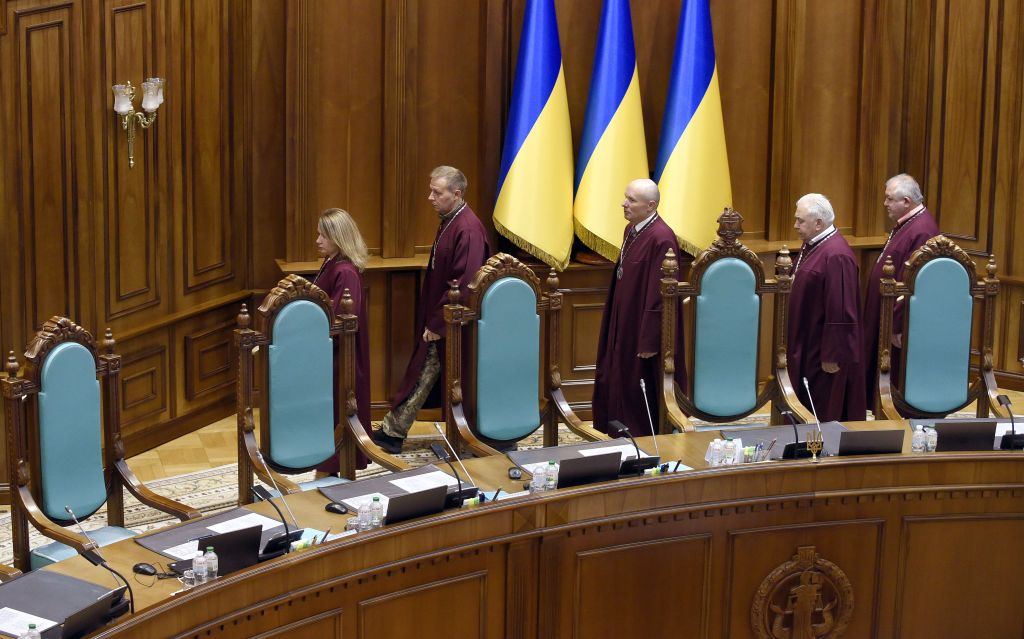
Civil Society NGO Repubblika is opposing a government-proposed constitutional reform to introduce a new standards czar to oversee the conduct of magistrates and judges.
Repubblika said in a statement that there is no place for a “czar,” in any democracy, to be introduced to rule over judges. The NGO argued that this constitutional reform – which is also set to increase the retirement age for judges and magistrates to 70 years old – may undermine the independence of the judiciary.
This proposed constitutional reform was tabled in Parliament on Tuesday. Through this, the government aims to delay a member of the judiciary’s retirement to 70 years old and introduce a standards commissioner, referenced as a standards czar, to oversee the conduct of judges and magistrates.
Being a constitutional reform, this Bill requires a two-thirds majority to pass through Parliament. The government has already met with the Opposition to see that this Bill can be enacted into law.
Repubblika said on Wednesday that “only the judiciary should have the power to monitor the conduct and discipline of judges,” therefore positioning itself against this proposed reform.
“No one should be appointed by anyone or by some outside the judiciary who has the power to discipline judges. In a democracy, there is no place for a ‘czar’ to rule over judges,” the NGO said.
Repubblika said that retaining judicial independence from other institutional branches such as government and the parliament is “a sacrosanct principle to the functioning of democracy.” In this regard, the NGO said that the Parliament’s redacted power to dismiss judges was an “important step in safeguarding the separation of powers.”
Furthermore, the NGO described the judiciary’s independent nature as not a privilege, but as “a necessary protection for all citizens” to avoid any instances where judges may rule according to the government’s or a politician’s wishes, in the face of threats or influence, rather than through the objective eyes of the law.
Reservations due to government’s track record
In its statement, Repubblika said that aside from democratic principle, it holds reservations towards this constitutional reform because of the government’s recent history in intimidating judges who take decisions that do not align with their views, and because of the tendency for Cabinet Members to ignore and act with contempt towards the Commissioner for Standards in Public Life.
“Through remarks made directly by Prime Minister Robert Abela and through campaigns in government-controlled media outlets, pressure has been and is being exerted on judges to submit to the will of the government,” Repubblika wrote.
Within this context, the NGO said that it fears that the government is contemplating manoeuvres that could have the effect of reducing the powers of the Commission for the Administration of Justice, the Chief Justice, and the independence of judges and magistrates.
While outlining that any power granted to a state official should come with monitoring measures as a means of ensuring that no-one acts above the law or beyond permissible ethics, including judges and magistrates, Repubblika noted that there is heavy irony in how Prime Minister Abela and other Cabinet members act towards the Standards Commissioner in the face of conclusions made against them, while the Standards Commissioner legally monitors their conduct.
Repubblika added that the Prime Minister is more concerned about the conduct of state officials, such as judges and magistrates, “who are not supposed to be under his control.”
Repubblika calls for White Paper and public consultation
The NGO concluded its statement by appealing for the government to publish a White Paper listing all the reforms it is contemplating here, in order to conduct an effective public consultation.
“It is not enough to hold discussions behind closed doors with judges as if the independence of the judiciary is a matter of concern to them alone,” Repubblika said, “It concerns the entire public and no discussion on the administration of justice should be part of negotiations on the pensions or working conditions of judges.”
Repubblika also called upon the judiciary to publicly participate in this discussion and also “be a responsible defender of its autonomy, without fear of how its position may disadvantage negotiations” on their retirement date of its members or on any other condition concerning their remuneration.
Repubblika also reiterated its call for a Constitutional Convention – something which the Labour Party has been promising, and is yet to fulfil, in its 12 years of governance “while the Constitution has continued to be eroded piece by piece.”












